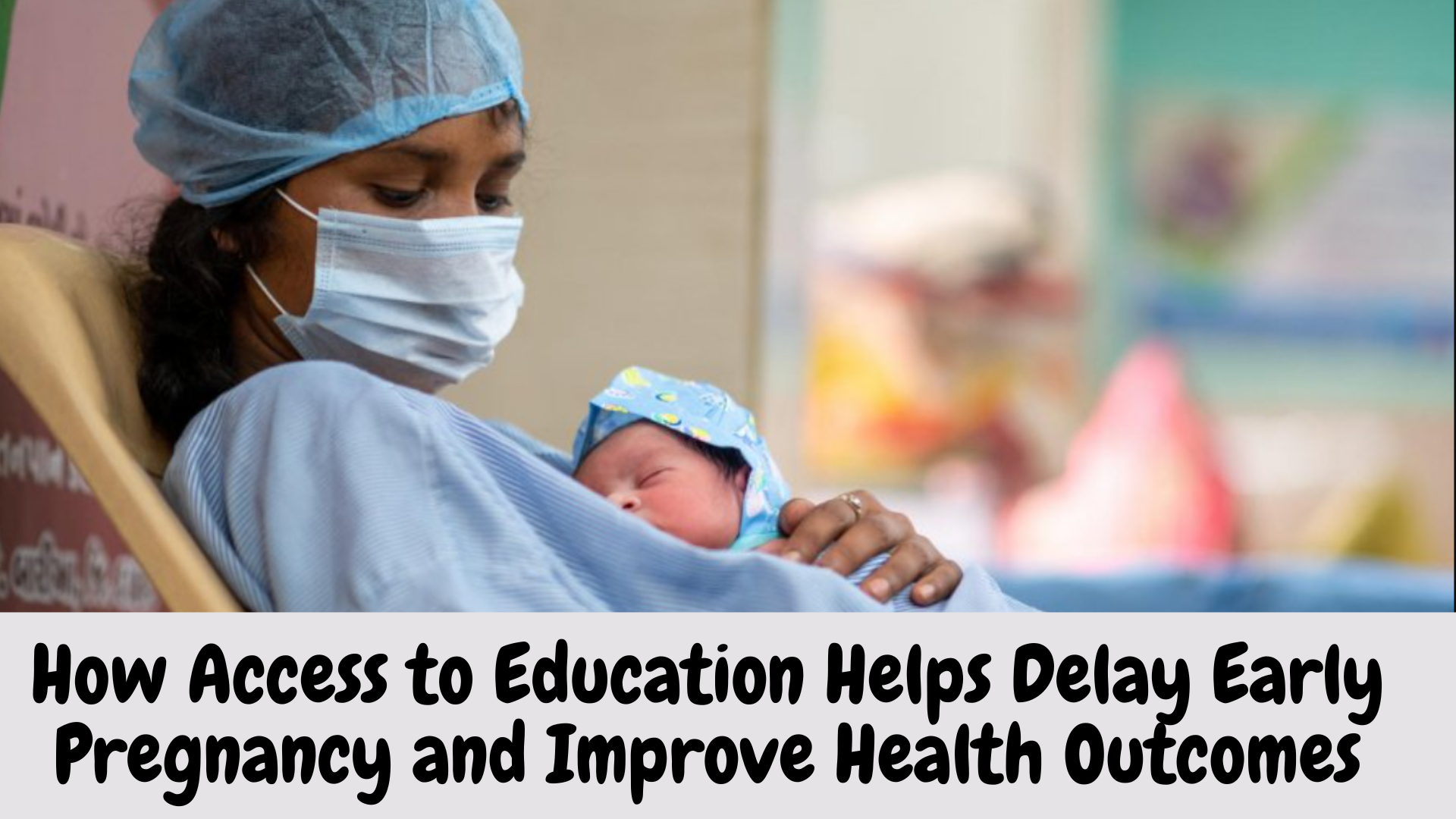In this article, we will discuss various facets of how access to education helps delay early pregnancy and improve health outcomes; so you must stay here and know the details.
How Access to Education Helps Delay Early Pregnancy and Improve Health Outcomes
Access to education is essential for improving health outcomes and preventing early pregnancies, especially for girls, especially in developing nations. Education enables girls to make educated decisions regarding their reproductive health by providing them with opportunities, knowledge, and skills.
Education gives people the knowledge they need to make better decisions about pregnancy and sexual behavior by empowering them with information about their bodies, sexual and reproductive health, and family planning. Additionally, it offers financial opportunities, postpones early marriage and childbearing, and enhances the health of mothers and children. You must go through this post to understand how access to education helps delay early pregnancy and improve health outcomes.
Education as a Tool to Delay Early Pregnancy
Several studies have found a strong link between delayed childbearing and girls’ educational attainment. Teenage pregnancy and early marriage can be considerably decreased with every extra year of education. An extra year of education, for example, lowers the likelihood of marriage and childbirth before the age of 18 by about 7 percentage points, according to research.

This effect is further supported by comprehensive sex education in schools. Teenagers are empowered to make decisions when they participate in programs that give them accurate information about sexual health, contraception, and reproductive rights. Research indicates that in the United States, comprehensive sex education funded by the federal government reduced teen birth rates at the county level by over 3%.
More Information: Get Here
Reproductive Health Benefits of Educating Girls
- By providing them with information about their bodies, sexual and reproductive health, and healthy relationships, comprehensive sex education empowers youth.
- Delays in sexual debut, higher use of condoms and other forms of contraception, and less risk-taking behaviors can result from this awareness.
- The risk of unwanted pregnancies can be decreased by education that improves knowledge of family planning techniques and contraception.
- Additionally, it can give them the ability to obtain high-quality prenatal and postpartum healthcare.
- Women’s health literacy is also improved by education, which helps them identify health concerns and get the treatment they need.
- Additionally, educated moms are more likely to provide their children with the necessary nutrition, get prenatal and postnatal care, and vaccinate them, all of which promote healthier communities and families.
- By improving knowledge of family planning techniques and contraception, education can lower the likelihood of unwanted pregnancies.
- It can also give them the ability to get high-quality prenatal and postpartum healthcare treatments.
Additionally, education improves women’s health literacy, empowering them to identify health concerns and seek the right care. Healthier families and communities are a result of educated moms’ increased likelihood of immunizing their children, ensuring adequate nutrition, and accessing prenatal and postnatal care.
Concluding Words
By delaying early pregnancies, improving health outcomes, and fostering economic empowerment, education serves as a catalyst for positive change. Education is a powerful determinant of reproductive health and overall well-being. In Malawi, for instance, advocacy led by young women raised the legal age of marriage from 15 to 18, ensuring more girls can complete their education.
Making sure girls have the opportunity to learn and thrive is not only a matter of equity but also a strategic investment in the health and prosperity of societies worldwide. The benefits of girls’ education go beyond individual outcomes, influencing broader societal norms and policies.
We are extremely happy that you have visited our portal to read on How Access to Education Helps Delay Early Pregnancy and Improve Health Outcomes.
